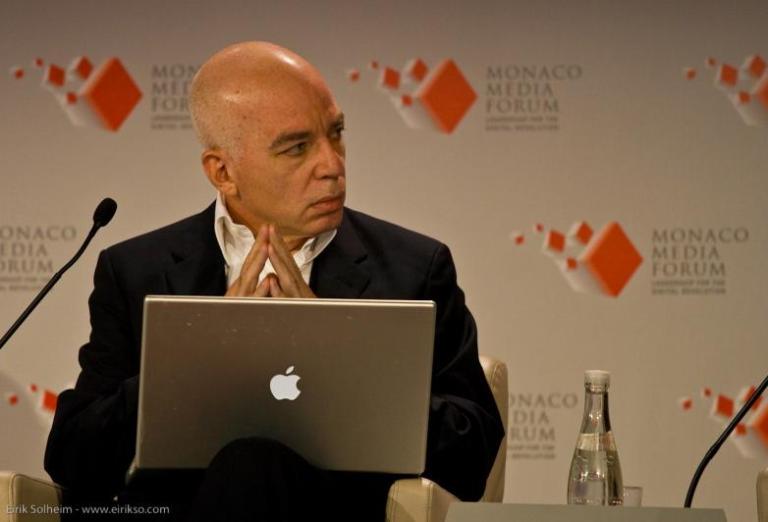Michael Wolff, the author of the inflammatory exposé of President Trump’s administration, says that everything in the book might not be actually, you know, literally true.
Here is what he says in the Author’s Note to Fire and Fury: Inside the Trump White House, p. 10:
“Many of the accounts of what has happened in the Trump White House are in conflict with one another; many, in Trumpian fashion, are baldly untrue. These conflicts, and that looseness with the truth, if not with reality itself, are an elemental thread of the book.
“Sometimes I have let the players offer their versions, in turn allowing the reader to judge them. In other instances I have, through a consistency in the accounts and through sources I have come to trust, settled on a version of events I believe to be true.”
Wolff is, in other words, a postmodernist writer, a “new journalist” of the sort that erases the boundary between fiction and reality. Since objective truth is unknowable, so they believe, all we have are subjective perspectives on the truth.
An author, whether of fiction or non-fiction, creates a narrative that is an imaginative construction, addressing the imagination of the readers, who reconstruct that narrative in their own imaginations. The journalist, historian, or other non-fiction author can still claim to approximate objective reality, by putting together other people’s subjective perspectives and by assembling isolated facts into a pattern, but their work too remains a “construction.”
Note that postmodernists do claim to believe in empirical “facts,” even as they deny that these are sufficient to establish larger “truths.” Wolff claims to have recordings of the interviews that were the basis of his book. I think what he is saying is that what they told him might not be true. He has no way of telling, but he published their accounts anyway.
Now this should undermine our confidence in his book. It turns out that Wolff has a reputation for inaccuracy. In fact, even liberal journalists consider him “a shoddy and dishonest journalist.”
So let’s assume that everything in Fire and Fury is a lie. It’s all fake news, fantasy, made up. Some questions remain:
(1) Who let this guy into the White House? I wouldn’t let an outside reporter into a faculty meeting, church council, or family dinner. Let alone the inner councils of our government! You need a certain element of privacy in order to conduct business, hold frank conversations, and build an atmosphere of mutual trust.
This would be true even of a legitimate, respected, unbiased reporter. So who would give a visitor’s pass that opens up the West Wing for 18 months (!!!) to a writer with the reputation of being a “shoddy and dishonest journalist”?
(2) Who would say these things to a reporter? If you don’t like your boss, you can think whatever you want in the privacy of your mind, or you can vent to your spouse and your most intimate friends whom you trust not to say anything. But who would vent to a reporter who is going to publish what you say? That is unprofessional, non-vocational, and stupid to the highest extreme!
We are assuming, though, that these accounts are all lies. So who would make up lies to a reporter? That goes beyond what we just said was the highest extreme!
And who would say these things, true or not, under your own name, to a reporter who has that “shoddy and dishonest” reputation? Shouldn’t you have checked who this guy is? Why would you put your career in the hands of someone who is likely to distort what you say?
Wolff is chronicling what he considers the ineptness, infighting, and chaotic dysfunction of President Trump’s White House. Even if everything he records is fake news, at least one aspect is self-authenticating. The White House staff demonstrates its ineptness, infighting, and chaotic dysfunction just by giving Wolff access and talking to him!
The most serious charges in the book are its portrayal of President Trump as incompetent, mentally unstable, and morally depraved. We can’t believe those accusations on the basis of Wolff’s “constructions.”
But what if a staff member really came to believe that the boss was this bad? Doesn’t that justify telling a reporter? I think the right thing to do if you could no longer, in good conscience, serve your employer would be to resign. From outside the administration, you could, perhaps, work against it. You might write your own inside-the-administration book, but even then you should not betray confidences or violate professional ethics.
Let’s be fair. The presidency may be one of the most difficult and complicated jobs there is. Donald Trump had no experience in government at any level. Of course it is going to take him awhile to figure out what he is doing.
And his staff was mostly inexperienced. Apparently, in dealing with journalists, they did not know the magic words: “off the record.” Wolff took full advantage of this naiveté.
But the infighting was so vicious–as confirmed by other accounts–that individuals were obsessed with scoring points against each other and maybe lying about each other. Such malice seems to have descended into betrayal, not only of their colleagues but of their president.
Which brings us to another question:
(3) Who would hire and preside over a staff like this? In days of yore, under monarchies, it was said that when things went bad, no one ever blamed the king. You blamed his advisors. Those of us who have supported President Trump would still like to think that way.
But even if we dismiss everything said in the book as the lying rants of disaffected “advisors” spilling their guts to a dishonest reporter, we have to be concerned about the president’s leadership, ability to inspire loyalty in his own people, and his obliviousness in letting this book happen.
OR, we could play the postmodernism game ourselves and construct our own explanatory paradigm, creating a narrative according to which everything in the Trump administration is going just fine.
Photo of Michael Wolff by Eirik Solheim from Oslo, Norway (IMG_0196) [CC BY-SA 2.0 (https://creativecommons.org/licenses/by-sa/2.0)], via Wikimedia Commons













